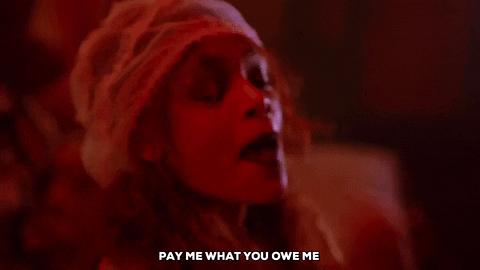Reparations: Run Us Our Money
African Americans and Black people have had to fight to survive, and for everything they have ever owned, since our ancestors were enslaved over 400 years ago. What tragically followed the abolition of slavery were centuries of legalized racial segregration, discrimination, imprisonment, white supremacist led massacres, and police brutality.
Whenever Black people made successful strides in attaining independence, income, and their own businesses after the Civil War and into the early 20th century, they were ravaged and destroyed by racist white people. The massacres of Wilmington, NC (1898) and Tulsa, OK (1921) are prime examples.
The former is the first successful coup in American history. It resulted in the expulsion of Black and white political leaders from Wilmington, destruction of the property and businesses of Black citizens, including the only Black newspaper in the city, and the killing of approximately 300 people. The Tulsa, OK Race Massacre is considered the single worst incident of racial violence in American history.

More than one thousand homes and businesses were destroyed, approximately 300 more people were killed, and the city was placed under martial law. HBO’s Lovecraft Country featured an episode titled “Rewind 1921” that features a heartbreaking retelling of the Tulsa Race Massacre.
The constant destruction of Black progress and entrepreneurship through the years, along with real estate segregation and exclusion of African Americans from the housing market, has resulted in systemic socioeconomic disparities and the lack of generational wealth to pass down within Black families and communities.
The topic of reparations has been a recurring proposal or conversation for centuries, in the midst of continued injustices, without being actual compensation to descendants of the enslaved. Tokenary measures of appeasement, however, have come in the forms of the removal of monuments, adding Harriet Tubman to the twenty-dollar bill, etc.

The U.S. can take a page from unified Germany’s Article 2 Fund which compensates survivors of the Holocaust in monthly payments of 580 Euro ($685.82 USD). The irony is that the U.S. government supported the East and West Germany unification during the Claims Conference in 1990.
The Chicago suburb of Evanston, Illinois is about to become the first U.S. city to pay reparations to Black residents. According to alderwoman Robin Rue Simmons,
True reparations should respect Black people’s autonomy and allow them to determine how repair will be managed, including cash payments as an option. They are being denied that in this proposal, which gives money directly to the banks or contractors on their behalf. If we’re doing reparations, let’s do reparations right.
Robin Rue Simmons
In addition, the aforementioned ongoing mortgage discrimination in Evanston and other parts of the country justify also tackling the years of abusive housing practices in reparations programs. It’s 2021 and Evanston, Illinois is only the first city that is actively moving towards reparations. This country has a long way to go, but hopefully the momentum from the social justice uprising in 2020 will push these kinds of changes forward for future generations of desendants.

